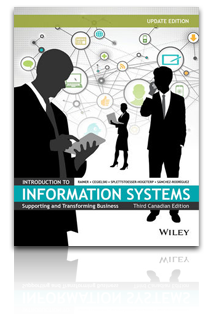Description: The publishing industry has not been having fun in the last few years. Newspapers, magazines and books were hurt by competition from the Internet and the changes caused by consumers choosing digital content rather than traditional ink on paper.
Source: Globe&Mail.com
Will Apple or Google (or someone else) end up “winning the subscription war?” I don’t have a clue, and I don’t think it actually matters to publishers … they will probably end up having to deal with both.
I am very sure that for publishers to talk about their business model and how it is threatened by these new deals is the wrong way to go. Readers don’t understand how the business model is changing. And even if they did, they wouldn’t care. They want to read great content, and they want to do so in the easiest way possible.
The publishing industry has had to deal with distributors before – some of whom took a more than 30 per cent cut. If buying becomes very easy, then we can expect sales of books, newspapers and magazines to rise, not fall. Read rest of story
Questions for discussion:
- Explain what you see as the new business model for publishers?
- Do you feel that this industry can change from a downward trend into a growing industry?
- What are the biggest challenges in implementing and adopting this new business model in the publishing industry?



Kuda
The new business model for publishers is to now switch to digital copes as opposed to the traditional printed copies. This business model will likely be more appealing to a broader audience who are more technology savvy. The business model does entail that publishers cut deals with web platforms that offer such services. For example, a 25% cut for either Google or Apple for every publication sold. Most definitely, this can become a growing trend as this generation is slowly becoming disconnected for traditional printed copy publication which are now somewhat bulky in comparison to having them all on an iPad. The challenge with the implementation of such a model is the fact that they are having to give up much of their margin to share with the platforms that would make these publications available electronically. Yet in light of that; one cannot afford not to jump on to the bandwagon because many publishing companies are now extinct because of a failure to adopt a progressive strategy for today
Mike
Oh man, I love this topic! I follow tech news through engadget, and when they brought this topic to their readers attention my immediate response was “Apple Apple, doesn’t like to bend its elbow.” it took me a few days to come to understand both sides of the conflict.
On one hand we have companies that want to sell their books, but that don’t want to lose money by paying apple the 30% cut. 30%? wow! That’s a LOT! so what are they paying for? Some room in an Apple server and an e-commerce infrastructure? That to me is too much, especially if you think of non-profit organizations that serve as gateways for authors and publishers to sell their stuff.
Now Apple doesn’t want to create the reputation that their books are more expensive than buyin them through another e-commerce gateway, so they are forcing everyone to give the 30% cut; even companies that don’t make any profit from the sale.
So who do I favour
Mike
Oh man, I love this topic! I follow tech news through engadget, and when they brought this topic to their readers attention my immediate response was “Apple Apple, doesn’t like to bend its elbow.” it took me a few days to come to understand both sides of the conflict.
On one hand we have companies that want to sell their books, but that don’t want to lose money by paying apple the 30% cut. 30%? wow! That’s a LOT! so what are they paying for? Some room in an Apple server and an e-commerce infrastructure? That to me is too much, especially if you think of non-profit organizations that serve as gateways for authors and publishers to sell their stuff.
Now Apple doesn’t want to create the reputation that their books are more expensive than buyin them through another e-commerce gateway, so they are forcing everyone to give the 30% cut; even companies that don’t make any profit from the sale.
So who do I favour? I’m going to go with a salomonic approach: seek middle ground people! That includes apple and the “middle man”
Mike
Oops, my first post was incomplete…
J.E.
I am not sure where Apple has come up with this magical 30 percent number but to me it is definitely a bit steep. Maybe they figure since it worked for their app store (taking 30 percent of app creator’s earnings) then it will work for the publishing industry as well. This though is just ludicrous. The publishing industry is a very competitive industry and it takes a lot more effort and a ton of more people to produce a book, or a magazine than it does for one guy to buy Apple’s SDK and create an application in the hopes of making some good money. The problem though is that companies such as Apple or Google kind of have the publishing companies by their throats. These companies will not want to be left out of the digital ebook era so they really do not have any other choice but to accept the terms in which these companies give them.
Teigen C.
I think that the growing war between digital books and paper material is going to happen no matter what. With the growing technologies, it is no wonder that companies are working to transfer books, magazines, etc into digital material. Whether it is good for the companies or not, it is something they are going to have to accept, or their company will go under. Personally, I am not a fan of digital books, but the ease and convenience of downloading and purchasing may one day convert me. The biggest thing looking forward is to figure out a happy medium for both Google and Apple and the publishing companies. One major benefit of digital books is the decreased impact on the environment, which is always a good thing to consider.